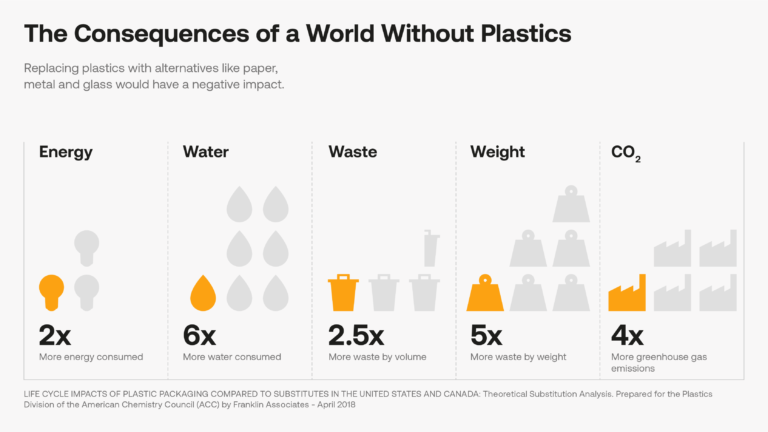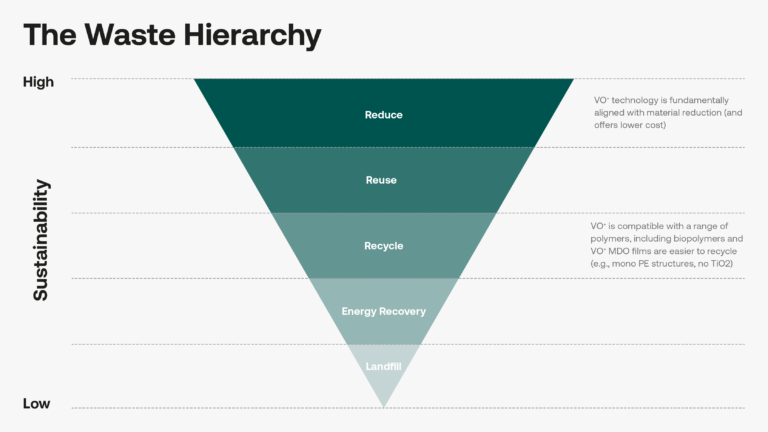Championing the circular economy
Sustainability is an integral part of our business, and we believe that plastics have an important role to play in achieving a more sustainable future. Plastic pollution is a serious issue that needs to be resolved by championing the circular economy. This means companies need to develop products that are easier to recycle, and recycling infrastructures need to be rapidly improved. At VOID, we are working to address plastics sustainability by developing high-performance products that use less plastic and are easier to recycle.
Plastics have an important role to play in our future
All materials have an environmental footprint. With so much attention on plastics, people may not consider the environmental cost of using alternatives such as paper, glass and metal, and forget the unique benefits that plastics offer. When assessed comprehensively, plastics are often more environmentally friendly than many people think. For example, plastic production requires much lower energy and water consumption, and typically has a lower carbon foot print than alternative materials. In addition, in some applications such as food packaging they can significantly extend the shelf life of products and this in turn helps to reduce food waste and the environmental impact on the agricultural sector.

Using less is the most impactful sustainability strategy
Many companies that rely on plastics are working to develop new materials, applications and recycling technologies that offer improved sustainability. This can be a complex process and there are many challenges to consider and solve, for example:
- The source of the materials including their carbon and environmental footprint
- The environmental cost for converting the material into products e.g. packaging
- The ease of recycling the final product
VOID’s approach to improving plastic sustainability utilizes the Waste Hierarchy framework and is based on prioritizing the most impactful solution. Specifically, VO+ technology fundamentally promotes using less plastic and improves recyclability. And, ultimately, using less material is the most impactful sustainability strategy.



